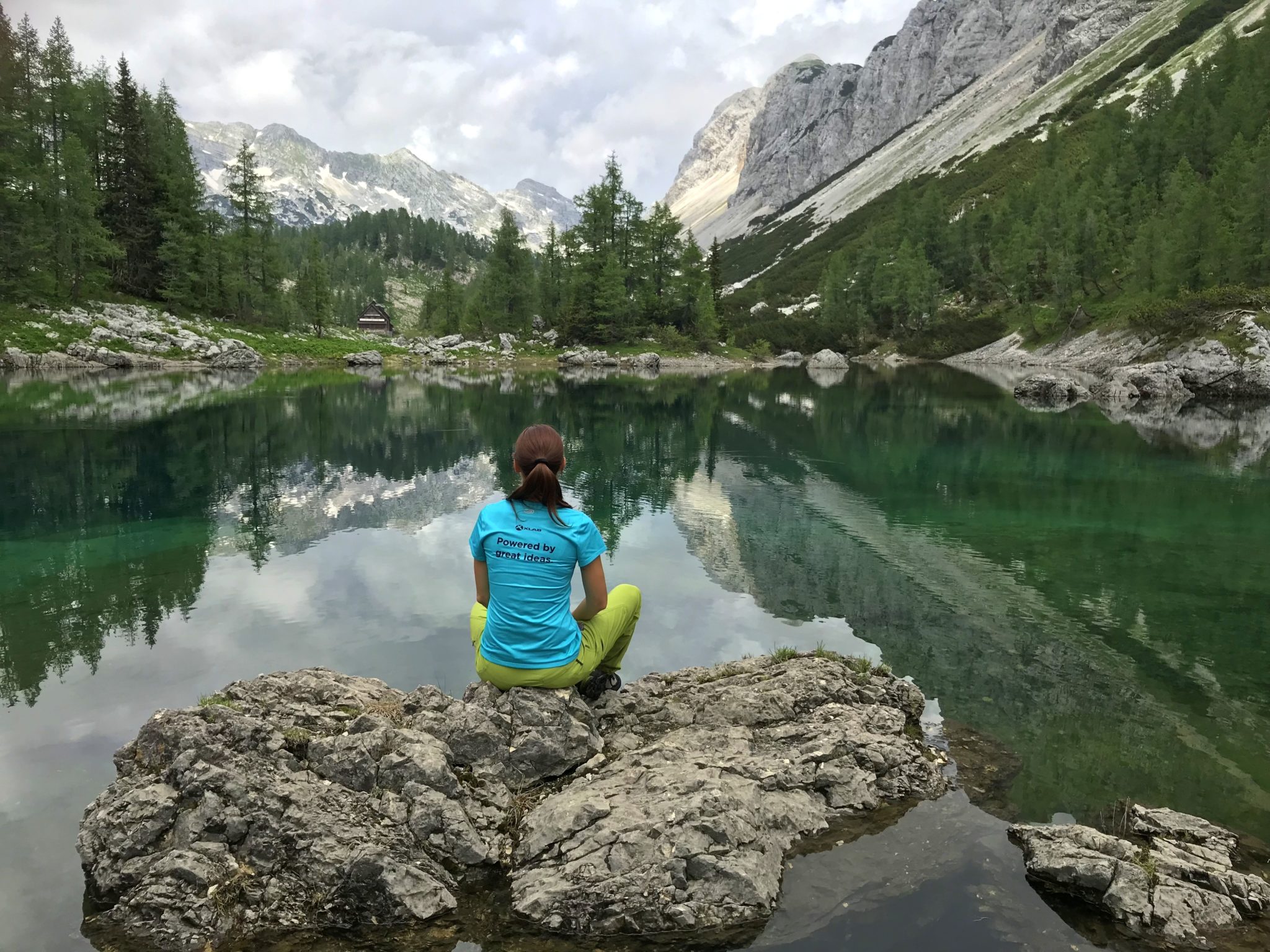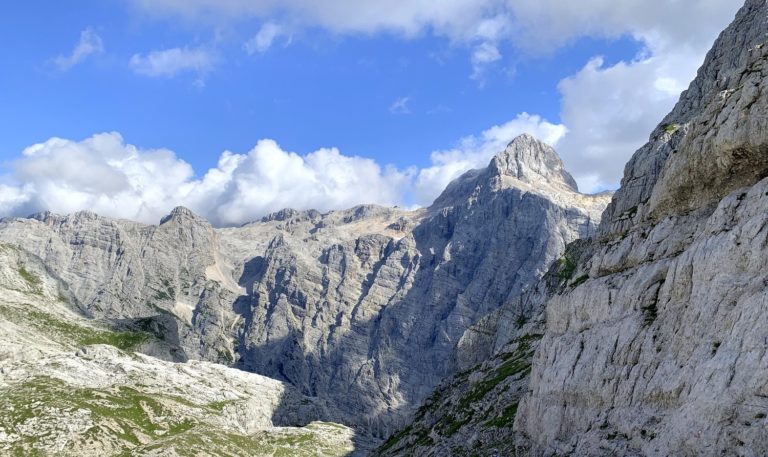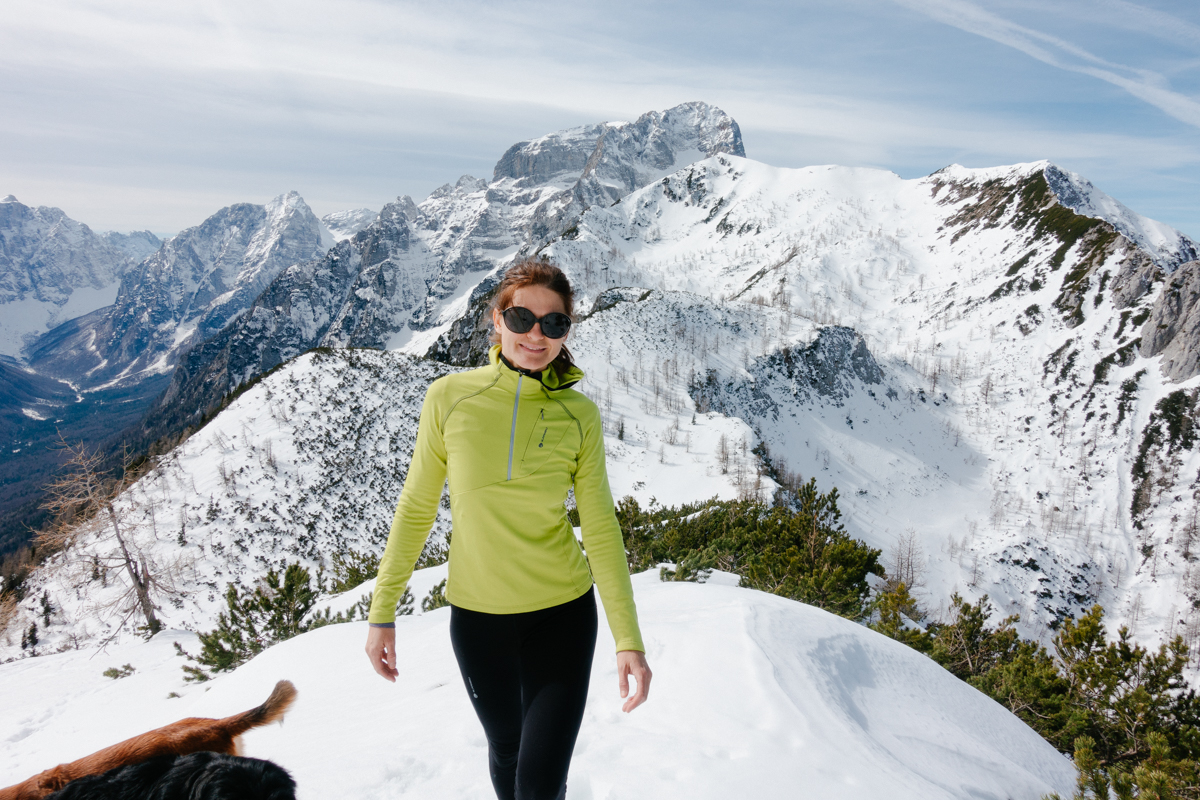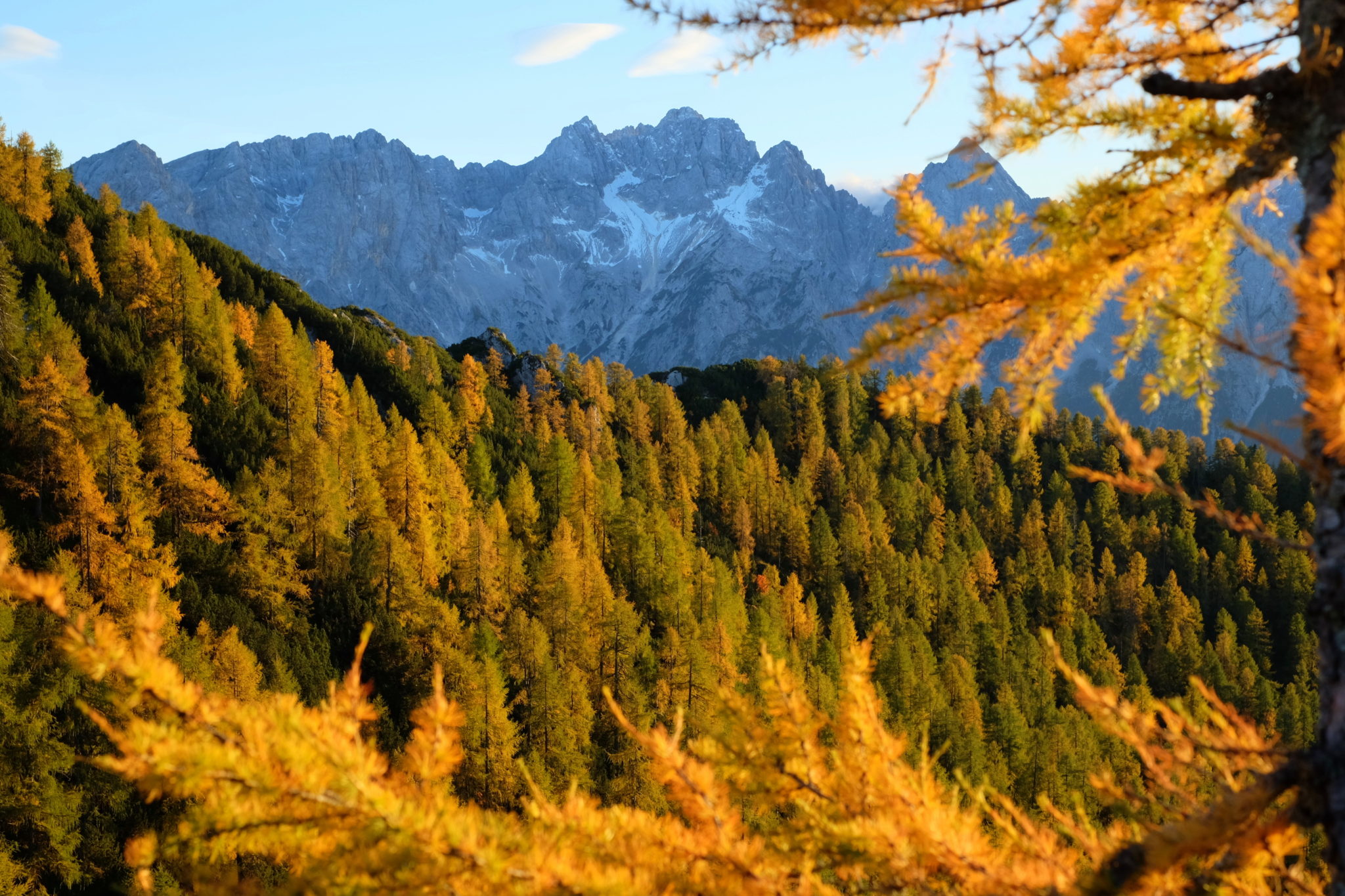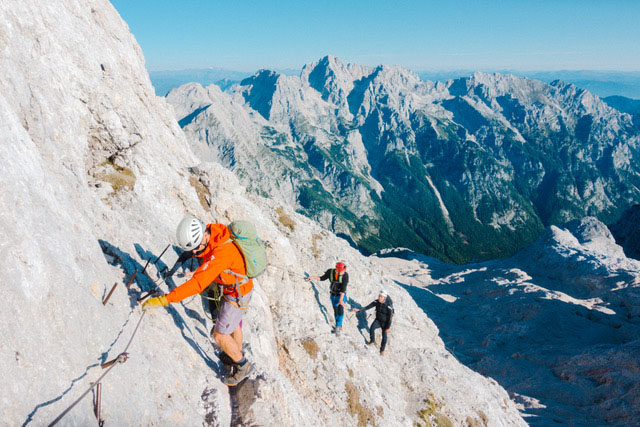Approximately a half-an-hour drive from Bled, in the very heart of the Triglav National Park, which is at its 838 square kilometers the largest protected area in Slovenia, a plethora of dreamy hiking trails connect valleys with the rugged mountainous world. One of them is a picturesque trail from the Vrata Valley to a high-Alpine plateau set underneath prominent 2.5K peaks. Named after the 2,410-m-tall mountain Križ, the Kriški Podi plateau is home to countless marmots, chamois and Alpine ibexes. Yet that’s not all. The fairytale hike lets you soak up breathtaking views of the highest mountain of Slovenia, Mt. Triglav, and its 3-km wide and 1-km tall Triglav North Face. With sheer rock walls towering all around you and the land so bountiful with wild animals, it feels like being in the middle of remote and dangerous mountains, while in reality it’s the very opposite. The steel cable secures only a couple of more exposed sections on the otherwise technically easy trail, and is as such appropriate for anyone normally fit and with a hearty sense of adventure.
Adventure
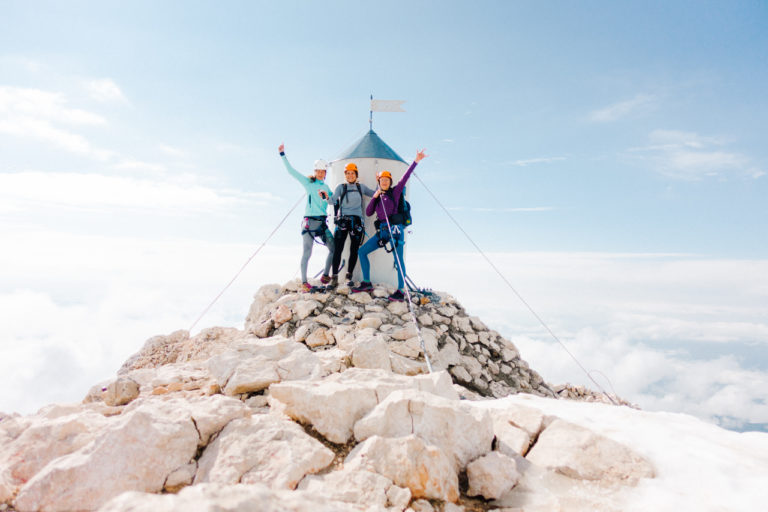
The most scenic tour to Triglav
It’s been 124 years since Jakob Aljaž, a great patriot and a priest, paid one Austro-Hungarian gulden for the top of Slovenia’s highest mountain. The amount of money one could have bought 50 eggs or 10 liters of milk for. His idea was to oppose the prevalent Germanization of the Slovenian people and the mountains in the Austro-Hungarian Empire back then.
Once the top of Slovenia was again Slovenian, he had a 2×1.25 m symbolic tower erected at the top of Triglav on 7 August 1895. In the following years he also mined an almost impassable 30-cm ridge between the peaks of Triglav and Mali Triglav into the nicely wide ridge we know today; besides, he also built the mountain hut Kredarica at 2,515 m and the Aljaž Hut in the Vrata Valley below Triglav. His far-reaching idea was to stimulate more Slovenians to visit the mountains, conquer the very top of Slovenia – the symbol of the Slovenian nation, make new legendary routes, and thus make the mountains Slovenian again.
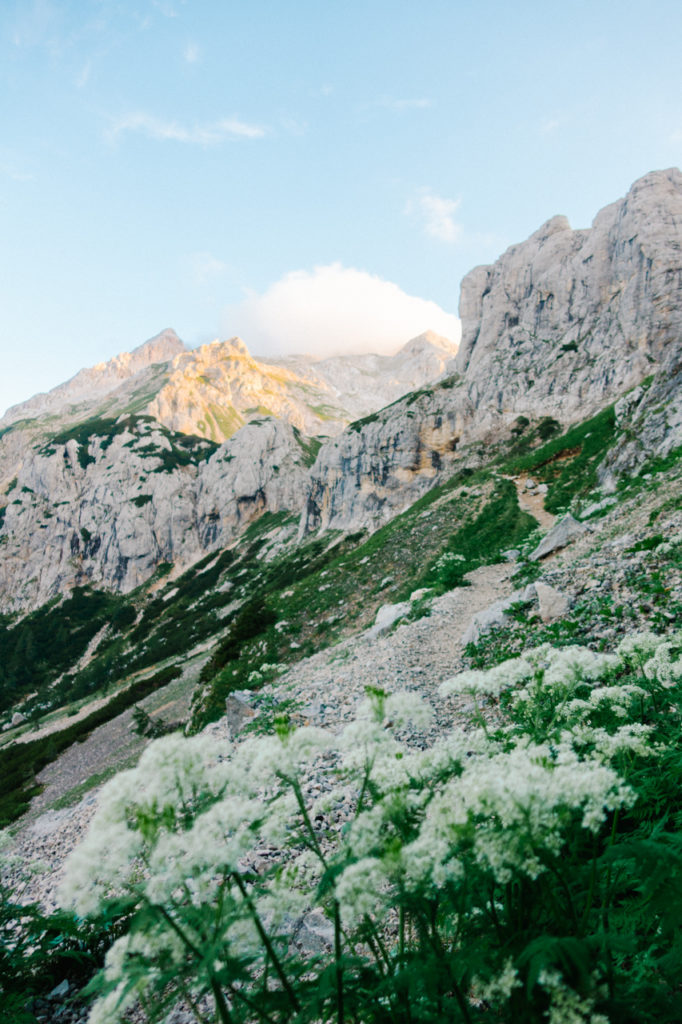
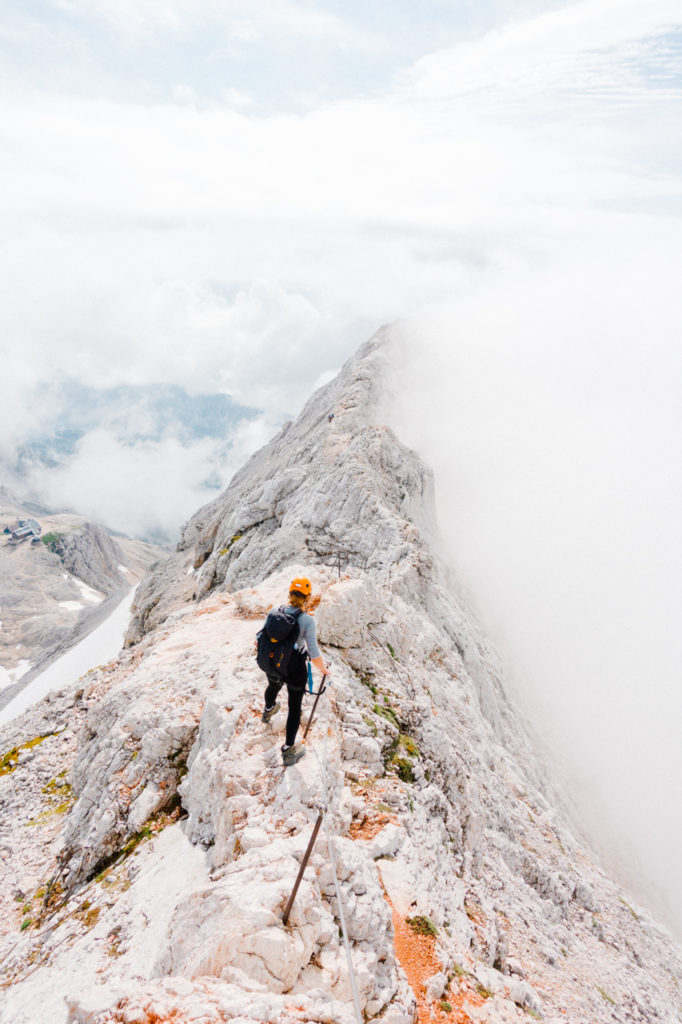
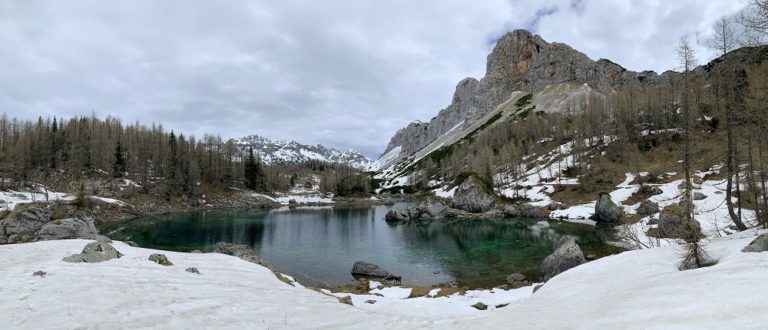
Our favoured one-day round tour to the Triglav Lakes
I’ve already written about what an amazing country this is, but despite all of its unique qualities, hands down my favorite part of Slovenia is the spectacular mountainous area of the Triglav National Park, the largest protected area in Slovenia covering 838 square kilometers, which encompasses Mt. Triglav and most of the 400 2K+ peaks found in the country. To be honest, the setting with pristine lakes, small streams and towering mountains couldn’t be more beautiful, inspiring or just plain divine. Why would you not hike there?
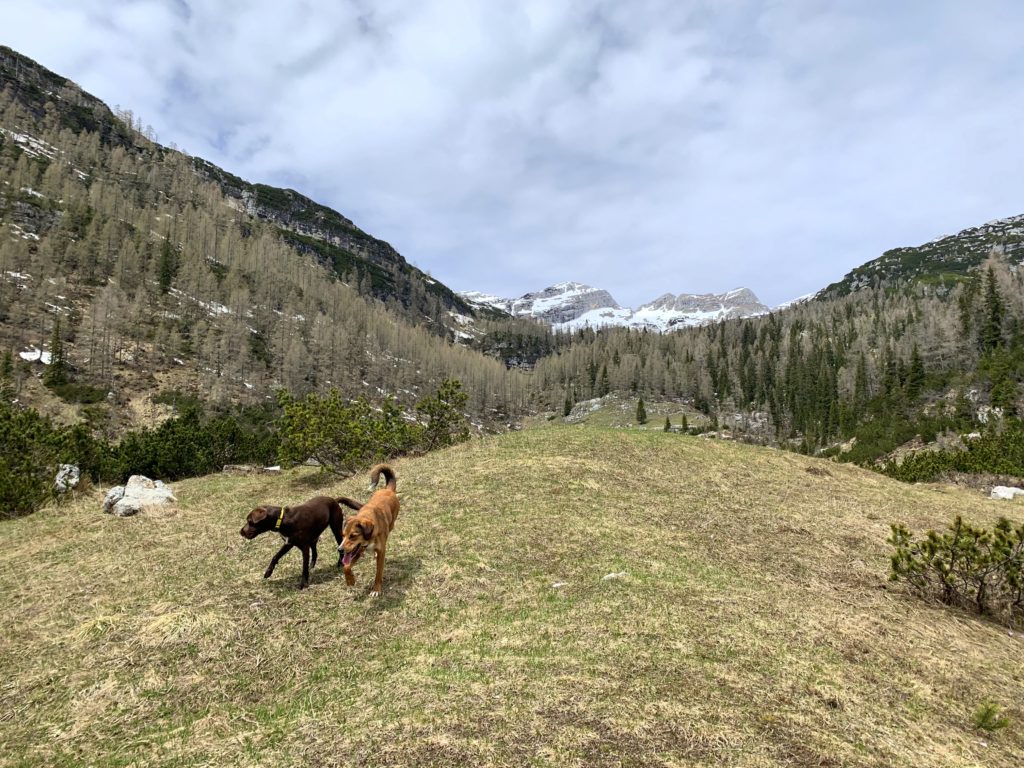
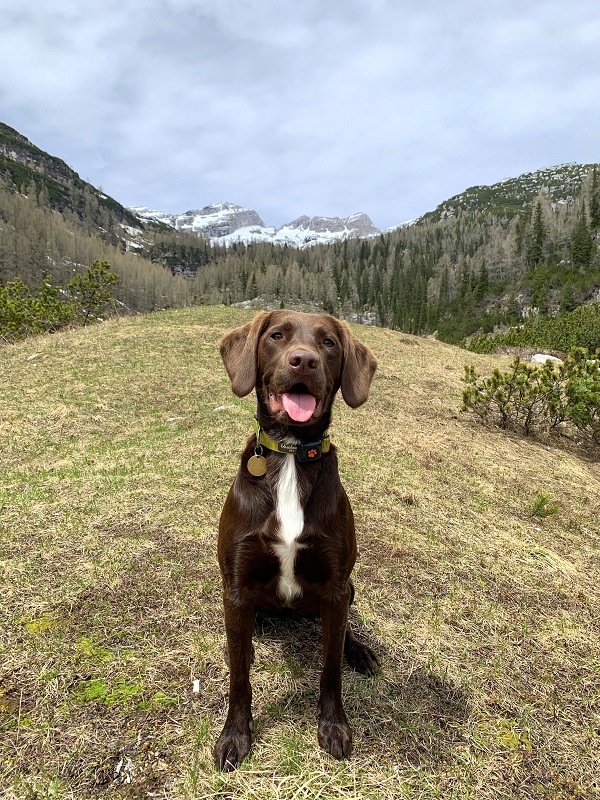
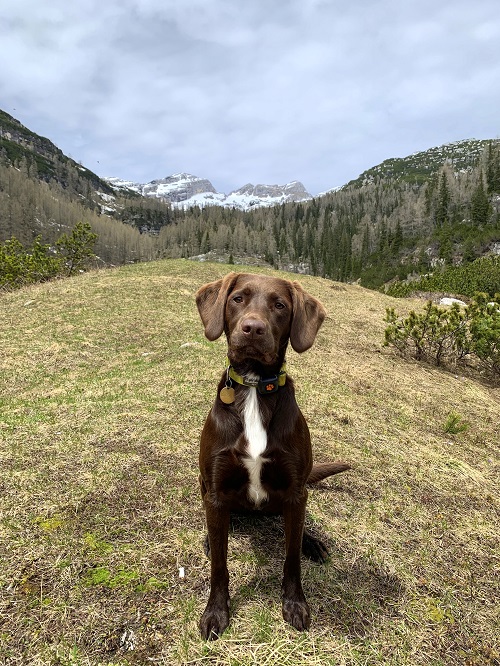
Check our next tour to the Triglav Lakes
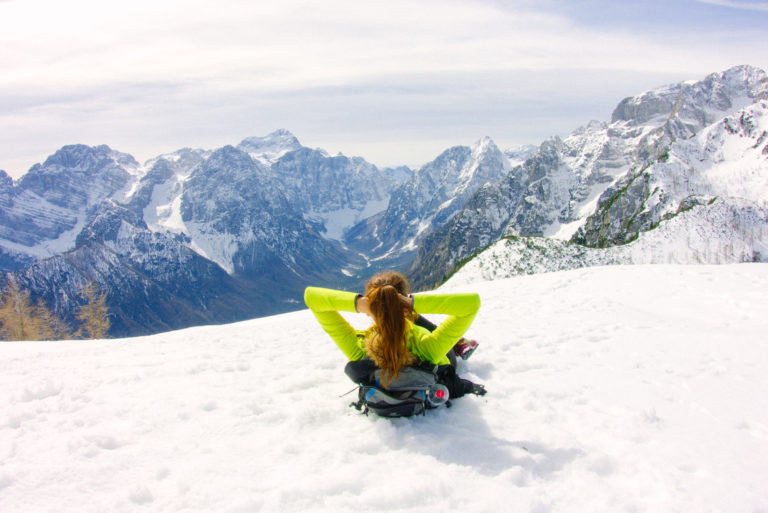
Beautiful mountain above Mojstrana: Vrtaški Vrh
At first glance, Mojstrana seems like a classic small town of a little over a thousand people. Yet this little town is anything but ordinary. Apart from hosting the Slovenian Alpine Museum, namely the only mountaineering museum in Slovenia, Mojstrana is also closely connected to the Julian Alps, the Triglav National Park and the Karawanks. That’s why I’m always beyond psyched when visiting that part of Slovenia and exploring the beautiful mountains and waterfalls surrounding it. This time I headed towards a most scenic 1,900-meter high mountain called Vrtaški Vrh with not only astonishing views of the tall and grand, but also green valleys and countless spring flowers blooming along the trail.
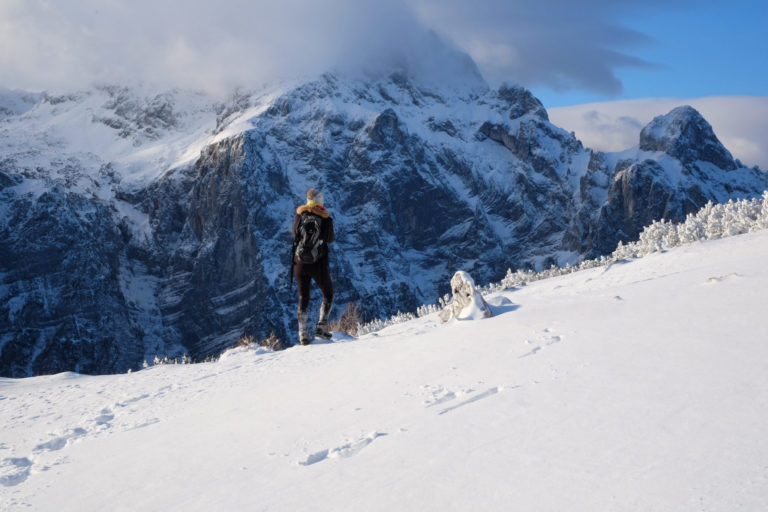
Encircled by high mountains, this picturesque village offers a plethora of hiking trails: Bohinjska Bistrica
Approximately 75 kilometers from Ljubljana, the country’s capital, on the outer edge of the Triglav National Park, the largest protected area in Slovenia covering 838 square kilometers that encompasses Mt. Triglav and most of the 400 2K+ peaks found in the country, there is a sense of contented isolation. It seems that wherever you turn there are dusty trails that wind through tall forests and eventually end up in the surrounding snow-capped peaks. Bohinjska Bistrica, a settlement of less than 1,800 people, lies cradled among 2,000-meter high towering mountains, making it a perfect holiday destination for everyone in love with hiking; mountaineers, families and complete beginners included.
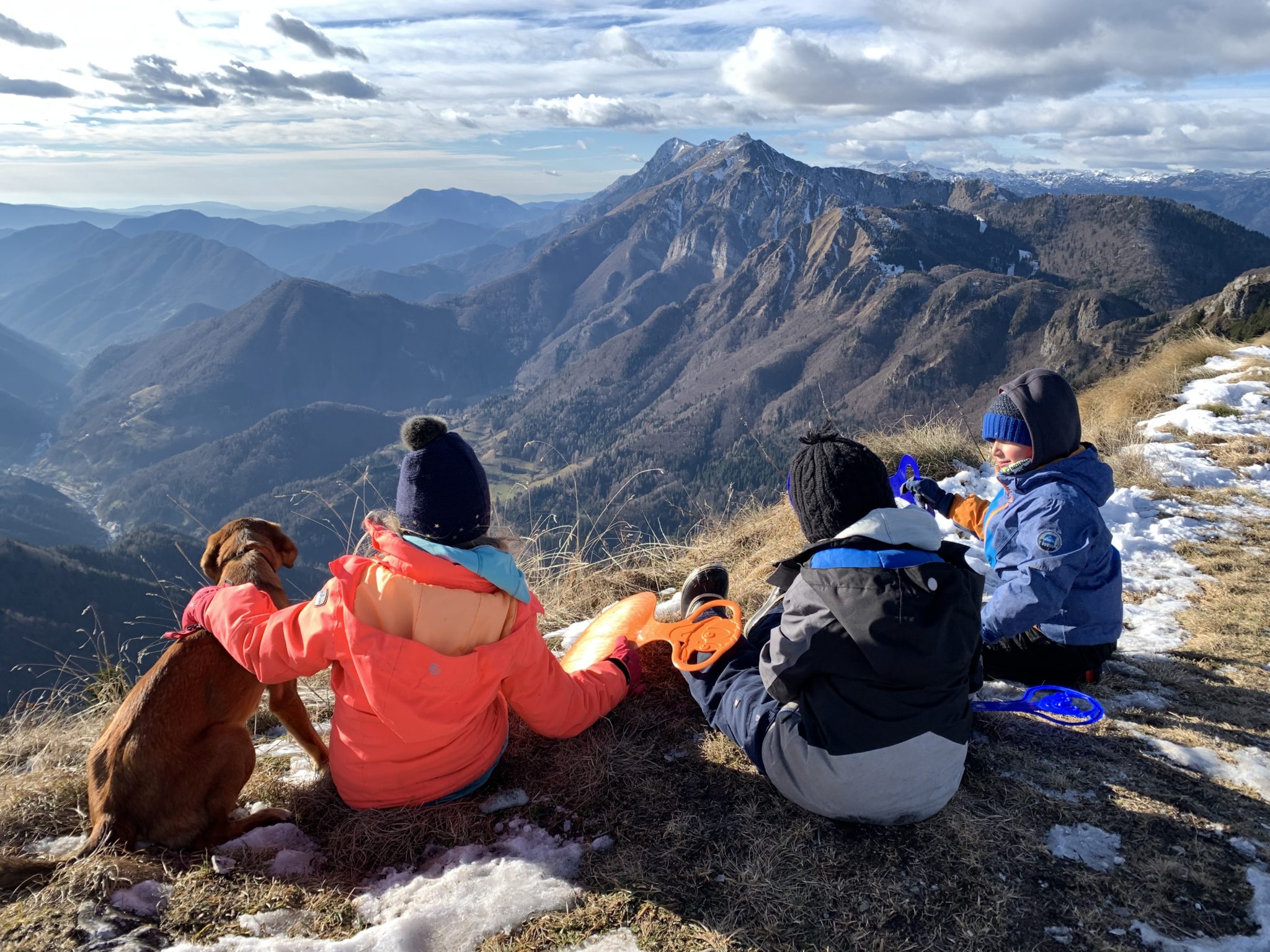
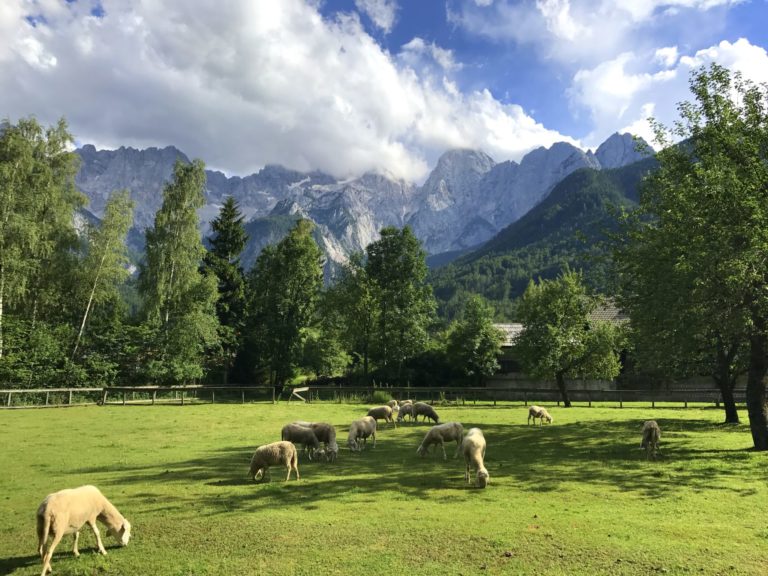
Waterfalls around Kranjska Gora
Hurtling over cliffs, narrow gorges, and mysterious mists lingering in the thick tall forest now dressed in spectacular autumn hues, the waterfalls around Kranjska Gora tend to be most spectacular particularly during the rainy months in the fall. The most fascinating falls in the area, the Peričnik Fall and Martuljek Falls, make a perfect daily trip either in moody weather or sunshine.
For more hiking ideas around Kranjska Gora, you are welcome to read Colors of the fall around Kranjska Gora: Trupejevo Poldne and Sleme
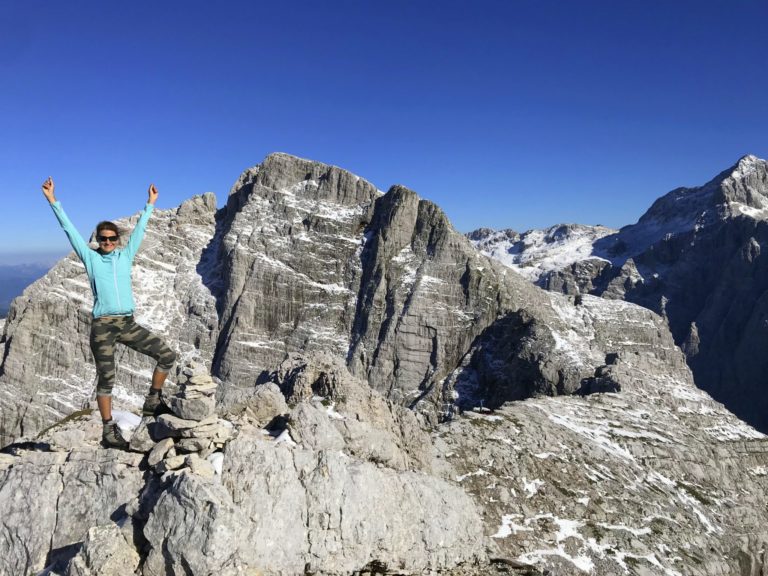
Climbing 2 K+ mountains in the Julian Alps after the first snowfall
With the early snowfall coloring the peaks of our highest mountains white, my thoughts go back to a special two-day climb in late August to three beautiful mountains in the Julian Alps I was honored to climb with my Dutch-Austrian friend Georg. Originally, we had been planning to climb Triglav over its 1-km high vertical North Face taking the Prag Route on the first day and explore the Triglav Lakes Valley on the second day, but as fate would have it, Slovenia experienced a sudden extreme drop in temperature just a few days before our trip and the mountains above 1,800 m dressed in an unexpected 30-cm snow cover. That called for a quick last-minute change of plan, and instead of climbing the Triglav North Face, we rather opted for the southern slopes of the spectacular mountains on the opposite side of Vrata Valley, also home to the beautiful Alpine ibex.
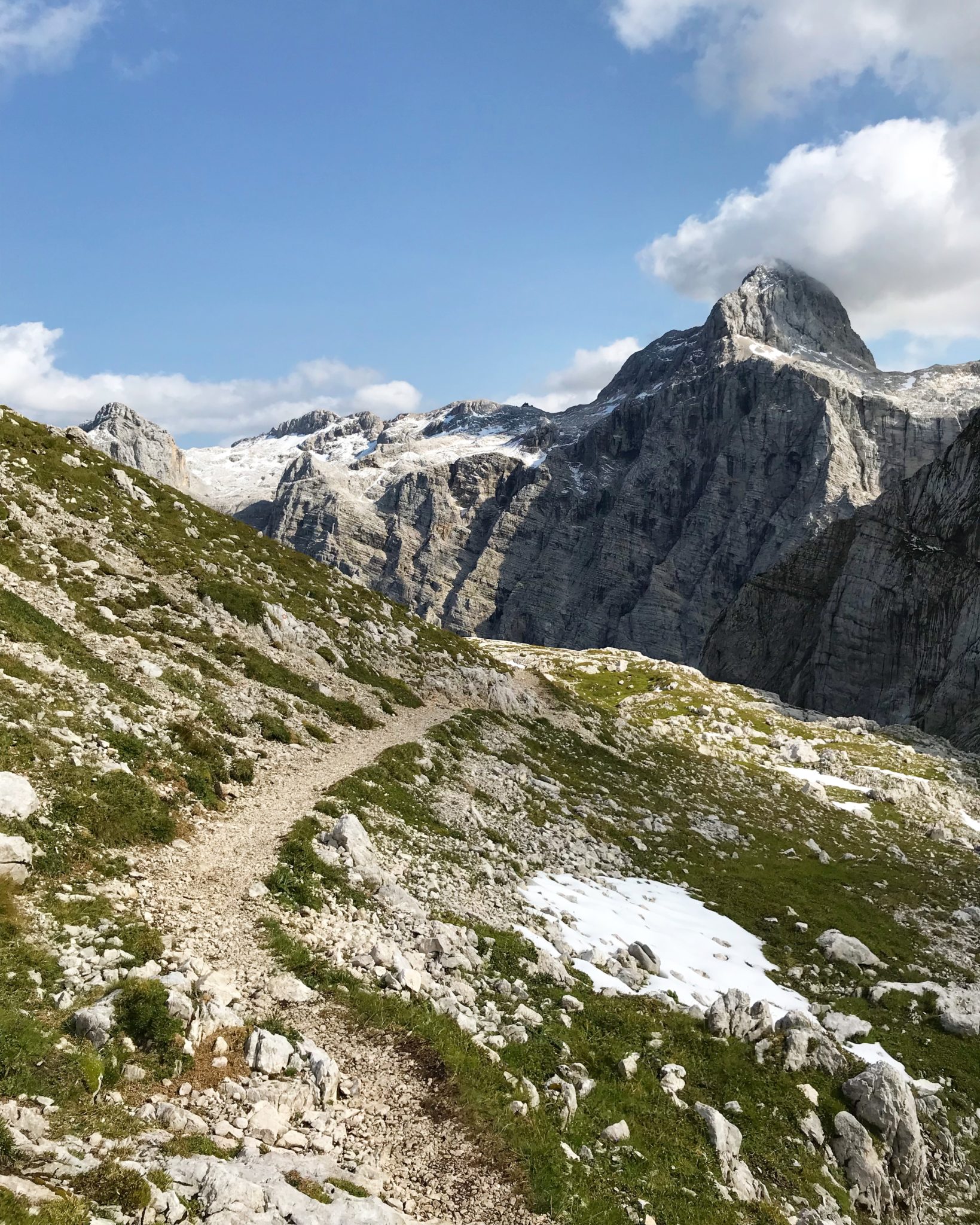
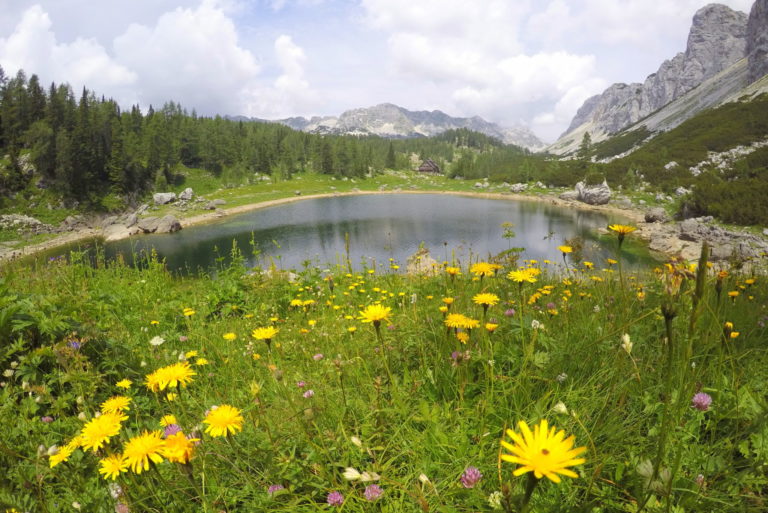
Rainy Julian Alps with the Americans
One day in February I got the most exhilarating call. It was Alenka from the Ljubljana Guides asking me if I could join her on an organized group hike in the Julian Alps in July. The plan was to start the hike from Savica above Lake Bohinj, go to the Krn Lake Hut on the first day, then off to the Triglav Lakes on the second and third day, and finally head back down to Lake Bohinj across the Blato Plateau on the fourth day. It sounded like a blast and so I was in!
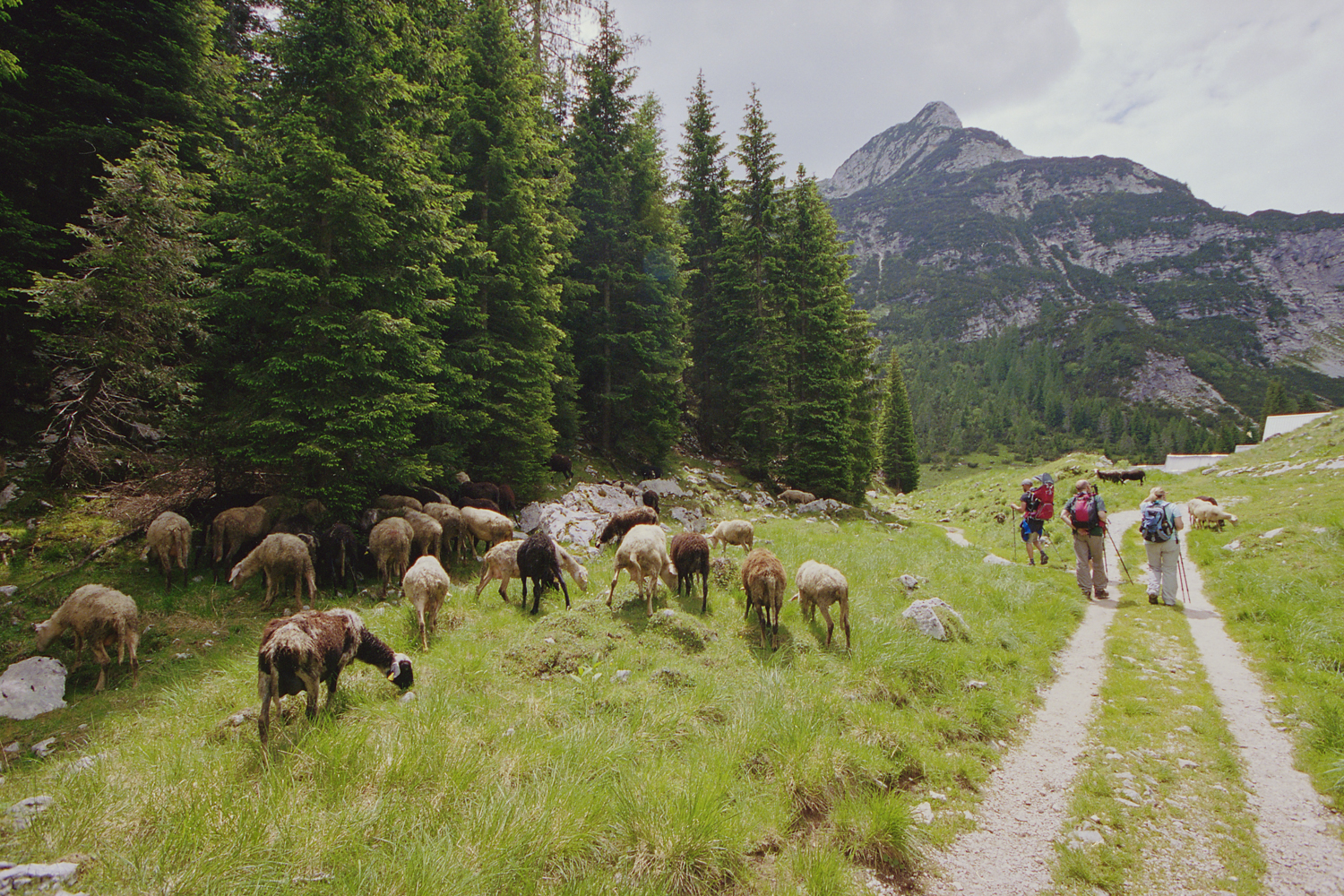
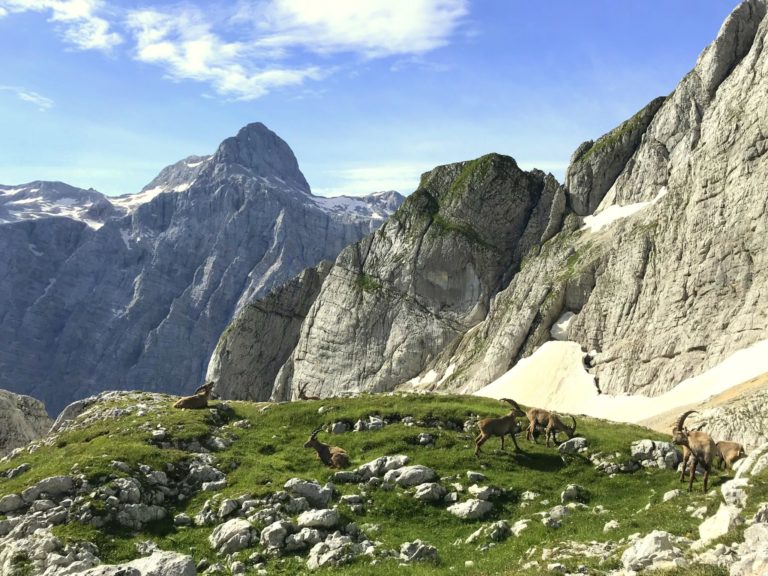
Wandering through the land of the Alpine ibex
On the hidden slopes of the Julian Alps lies a remarkable kingdom of the legendary Goldhorn, an Alpine ibex with golden horns that had supposedly chased away everyone intruding upon his territory. Today, the rare Alpine ibex continues the Goldhorn’s famed charisma. With only about 300 left in the Slovenian Alps, their awe-inspiring image with horns as long as over a meter earned them the title of the king of the Alpine world. While there’s a big chance meeting a chamois in the Slovenian Alps, finding an ibex generally means knowing its territory well, seeing a large group of ibexes, on the other hand, only means sheer luck.
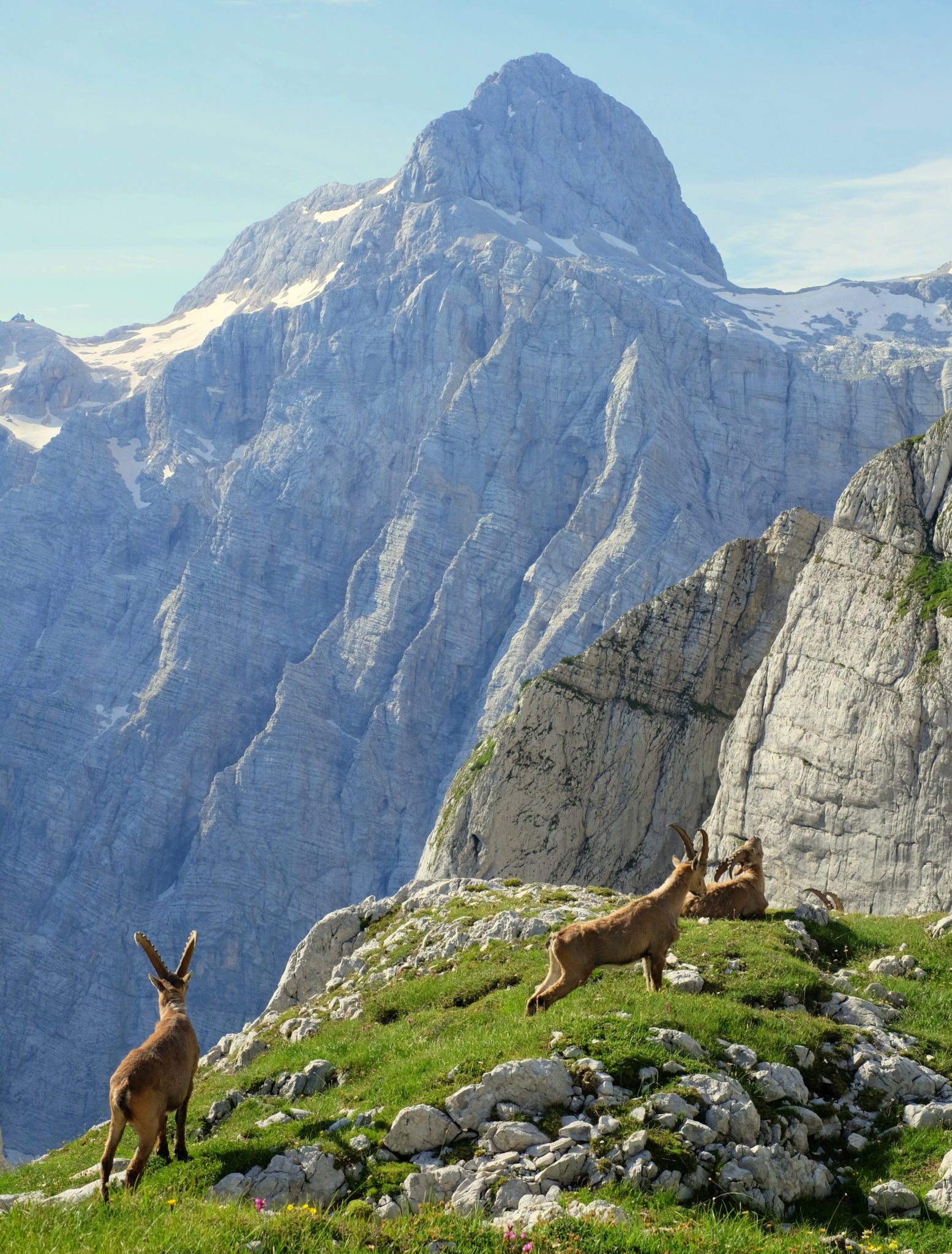
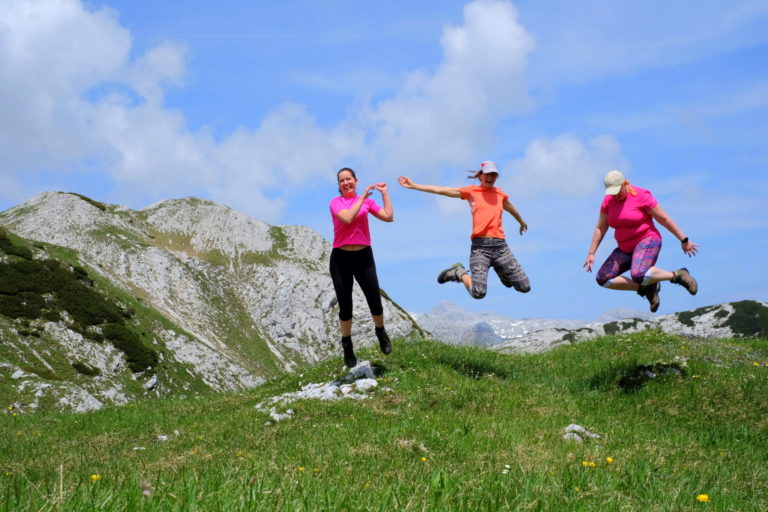
This is how women climb mountains: Komna – Bogatin – Double Lake – Komarča
The past weekend was not about setting speed records. On the contrary, it was about three friends having great fun, sharing intimate stories, laughing to tears about things others might find stupid, and making new memories to laugh about in the years to come. We immersed ourselves in our first hiking adventure together, heading towards places that offer a real feast for the eyes – forests, lakes, wild flowers and fauna.